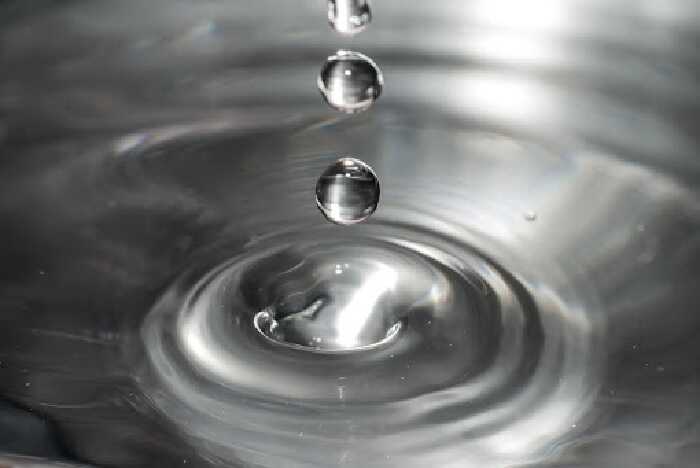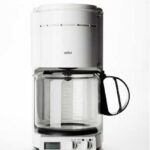What if you wish to distill aqua by yourself at home one day but don’t have the necessary equipment? Can you make distilled water with a coffee maker you have in your kitchen?
Distilled water is regarded as among the healthiest drinks, guaranteeing that all pollutants are removed from it. But is it appropriate to prepare with coffee?
Let’s look for the answers to these questions in my article right now!
Contents
Get To Know About Distilled Water
What Is Distilled Water?
It is steam that has been cooled down and restored in liquid form from boiling water. Some individuals believe that this type seems to be the cleanest source available for drinking.
Whether from an artesian well, a natural spring, or a normal tap, all water may include trace but harmless quantities of minerals, pesticides, bacteria, and other pollutants.

Distillation removes all contaminants from aqua. However, it also eliminates over 99.9% of minerals mixed with it.
Is It Safe To Drink?
Absolutely. However, you will most likely find it flat or boring. It is depleted of essential minerals such as calcium, salt, and magnesium, which you can expect a slightly sweet aftertaste from tap water. There is nothing but oxygen and hydrogen remaining in distilled liquid.
Can You Make Distilled Water With A Coffee Maker?
Basically, you can’t make it with a coffee maker. Even if you use the most modern machine, the answer is still no. Here are 3 reasons.

1. Coffee Makers Only Boil Water
A coffee maker is able to boil only and is not suited to perform the condensation step in the process of distillation.
It lacks a cool surface on which steam may condense into a distilled liquid. As a result, you can’t use your machine to produce it.
2. Distilled Water Is Not Safe For Coffee Makers
Internal parts of coffee makers and espresso machines are typically composed of metallic minerals such as nickel, copper, stainless steel, brass, etc.
It draws metal ions from interior components of the coffee maker or espresso machine due to its chemical makeup (i.e., absence of minerals).
You should not use pure distilled liquid since it can cause the metal elements of your machine to corrode slowly.
3. Coffee Makers Can Not Detect The Distilled Water
You should also not make coffee with distilled water as it might be hazardous to many coffee makers. It’s especially the case with espresso machines with autofill boilers.
Those boilers depend on their probe, which detects the mineral content as it comes into touch. The mineral content can conduct electricity and instantly stops filling.
Since it has been demineralized, which means your probe would not activate, as well as the boiler’s autofill feature would not switch off or basically would not start. Then, you will continue to receive errors.
5 Simple Steps To Make Distilled Water At Home

Step 1: Set Up The Pot
First, you will have to fill your large enough pot with water and set it on the burner. Set the kettle on top of the fire brick, then carefully place it within the kettle. To minimize spillage, ensure that these components are correctly balanced.
Step 2: Boil Water
For this stage, you’ll need to utilize the coffee pot’s lid. Place the cover on top of the pot, exactly above it, with caution.
It’s ideal to begin heating this liquid at this stage, so put up the heat on your stove. Water typically requires average temperatures from 212-215°F to boil effectively. When it begins to boil, reduce the temperature and allow it to continue to boil gradually.
Step 3: Add Ice Cubes
Pour at least 3 ice cube trays or more on the top of your coffee pot’s rounded cover’ immediately after the second step, as the liquid starts to boil.
The quantity of ice you use is up to you, as it’s the volume of distilled water you will receive in the end. It’s best to use more than 3 trays if your ice cubes are tiny.
Step 4: Collect Vapors
When the steam begins to build, the cool cover of the pot will aid in condensing it, and it’s the essential step in your distillation process. Make certain that your lid is disinfected and clean.
As it is positioned below the pot, the steam that pulls water will drop into it. To avoid disturbing the finished product, ensure your pot is spotless and disinfected.
Step 5: Enjoy Homemade Distilled Water
The liquid you gather in your pot is now distilled. Please wait for it to cool down before putting it in any containers, and use BPA-free plastic bottles.
The flavor of distilled water could be unrecognizable because of the loss of components such as phosphorus or iron, among others.
The secret to this process is patience because it takes roughly 30-40 minutes or even more to create one-quarter gallon of distilled liquid. However, once you end up with homemade water, you will believe it is worthwhile.
FAQs
What Are The Advantages And Disadvantages Of Drinking Distilled Water?
The Advantages
A straightforward and natural procedure: Distillation is a highly natural method of purifying water because it does not involve filtration machines or the addition of any Dubois chemicals. It’s a simple and accessible technique, which you can do yourself.
The body’s detoxification: Distilled water will help cleanse and detoxify the body by removing toxic and harsh substances.
Reducing illness exposure: Distilled water intake reduces your risk of contracting any waterborne illnesses caused by microorganisms.
Protection against hazardous additives: Numerous companies might add calcium, which is harmful to people who have kidney stones. Because distilled water has no additions such as calcium, it reduces the likelihood of producing kidney stones.
Better for people with weakened immune systems: In case your immune response has already been impaired or suppressed, your doctor may advise you to consume distilled water rather than tap water.
It’s primarily since it is generally free of pollutants. Distillation also destroys all viruses, which may harm our immune system.
The Disadvantages
Must store distilled water with caution: You must exercise extreme caution when storing your produced distilled water because it has a particular ability to absorb toxins from its surroundings. About its storage, it is advised that you should use BPA-free plastics.
Harmful elements are quickly absorbed: This leaching property may cause the water to absorb any undesirable and dangerous substances from these plastic bottles in use for storing.
Can cause a metabolic imbalance: Consuming distilled water can induce metabolic imbalance since it lacks essential elements like magnesium. As a result, you can’t receive the appropriate replenishment level you seek, particularly when using it during or after a workout.
What Is The Difference Between Distilled Water And Purified?
Purified water was already successfully filtered to eliminate contaminants; nevertheless, dissimilar to distilled water, natural minerals like calcium, magnesium, and so on are not removed from it. So it all comes down to personal taste, as both are wonderful, healthy solutions.
In essence, purified and distilled water are safer alternatives to tap water since they are devoid of pollutants.
Choose the latter if you would like the purest liquid available. The purified one is also a great option if you would like safe and clean drinking water with the additional benefit of some healthy minerals.
How Does Water Affect Coffee Taste?
To tell you the truth, 98% of a coffee shot is water, so the type you use will definitely affect quality. If you’ve ever thought of opening a coffee shop, please keep this in mind.
It varies by area and may originate from anywhere globally. Still, the most frequent forms used to prepare coffee are tap and filtered liquid, largely since they are readily available.

Filtered water tastes much different and will significantly alter the flavor of your shot. Tap water has more contaminants and might impart a metallic and acidic touch to your cup. Use filtered or bottled one for a cleaner-tasting coffee cup!
Filtered water, however, has a variety of minerals, which can give it soft or hard qualities. These other features will also have an impact on the taste of the coffee.
The term “hard” refers to the extra magnesium and calcium minerals, which can be present in the liquid. The fewer minerals there are in this liquid, the “softer” it is.
Your finished cup might taste extra bitter than normal due to the added minerals present in “hard” water.
Conclusion
After all, Can you make distilled water with a coffee maker? Just keep in mind that if you ever need to manufacture homemade distilled water, your coffee machine will not suffice. You would have to think outside the box by utilizing a coffee pot rather than an espresso machine.
We are more susceptible to illnesses than ever before because of growing pollution levels worldwide. Thus, it is preferable to invest in healthy lifestyle alternatives such as consuming distilled or filtered water.
Thank you for reading!
The Related Article
Comparison Articles
- Ninja CM400 Vs CM401
- Jura A1 vs Ena Micro 1
- Breville BES870XL Vs BES920XL
- Jura D6 Vs E6
- Jura J6 Vs E8
()

